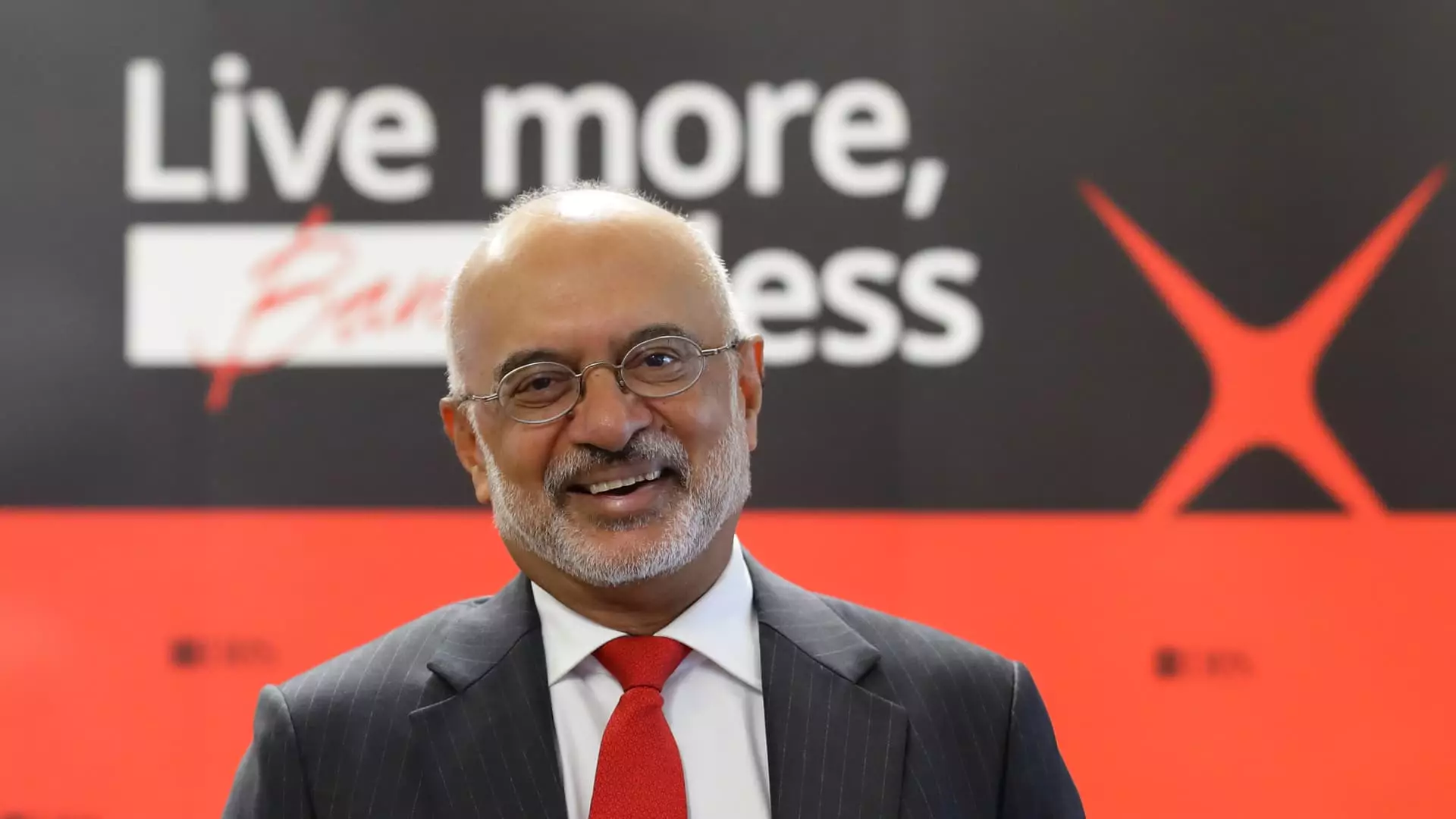DBS Bank reported an exceptional financial performance in 2024, with net profits soaring to an all-time high. Under the leadership of CEO Piyush Gupta, the bank recorded an 11% increase in its annual net profit, reaching a remarkable 11.4 billion Singapore dollars (approximately $8.4 billion). This achievement was bolstered by a robust revenue growth of 10%, totaling SG$22.3 billion. Gupta expressed pride in the breadth of the bank’s performance, highlighting various factors such as heightened fee income and record high treasury sales that contributed to this success. With DBS shares hitting a record intraday peak of SG$46.5, the market responded positively to the bank’s strong showing, signaling investor confidence in its management and strategic direction.
However, amidst this financial triumph, Gupta underscored the necessity for agility within the bank as it prepares to tackle potential challenges in the upcoming fiscal year. In a candid interview, he delineated the risks posed by the unpredictable nature of tariff policies and monetary regulations emanating from the United States. Gupta’s mention of the Trump administration’s potential economic maneuvers reflects a concern shared by many financial institutions that find themselves at the mercy of global economic trends and decisions made by U.S. policymakers.
As the world braces for a potentially tumultuous 2025, Gupta elucidated that DBS must embrace “nimbleness” in response to fluctuating economic conditions. The bank’s success during a volatile period hinges not just on its past performance but on its readiness to adapt to new circumstances. The upcoming period may see shifting interest rates, which are notoriously difficult to predict. Although initially forecasting four interest rate cuts by the U.S. Federal Reserve in 2025, DBS has since revised those expectations to two, reflecting the increasingly convoluted economic landscape.
Intriguingly, Gupta emphasized the complexities associated with interest income predictions, noting that several factors influence these rates. This acknowledgment of uncertainty reflects a broader sentiment across the banking sector as many institutions strive to recalibrate their strategies amid changing global dynamics. The ability to forecast accurately while remaining adaptable will be paramount for DBS and similar entities as they look to maximize their financial outcomes.
In a bid to enhance shareholder value, DBS announced a substantial capital return strategy amid the backdrop of its financial triumphs. Following its stellar results, the bank proposed a final dividend of 60 Singapore cents per share, a 10% increase over the previous year’s payout. Additionally, DBS introduced a new “capital return” dividend, which will see 15 Singapore cents allocated to shareholders for each quarter in 2025. Gupta indicated that this initiative to return excess capital reflects the bank’s robust capital adequacy ratio, currently at 17%, surpassing its targeted operating range of 13%.
Such moves are indicative of a strategic approach to capital management—prioritizing not only financial health but also shareholder satisfaction. With investors increasingly seeking value, the commitment to distribute excess capital will resonate positively among shareholders waiting for a long-term approach to returns. Gupta’s message of judiciousness in capital management reinforces the bank’s forward-thinking strategy designed to balance growth with financial stability.
Notably, this financial reporting marks a significant juncture for DBS, as CEO Piyush Gupta prepares to pass the leadership baton to Tan Su Shan on March 28. Gupta has steered the bank through transformative changes, but as he prepares for retirement, his insights into the upcoming challenges will be crucial for his successor. The transition occurs during a challenging time in the global economy, thus a steady hand will be required to steer DBS Bank effectively through the uncertainties ahead.
As the financial world gears up for 2025, where unpredictable tariffs and interest policies loom large, DBS’ recent successes provide a strong foundation. Still, they must balance this with a keen awareness of potential volatility and the agility to adapt. The future success of DBS Bank hinges not only on its latest financial feats but also on its ability to navigate the complexities of a fast-evolving economic landscape while maintaining shareholder trust and confidence.

